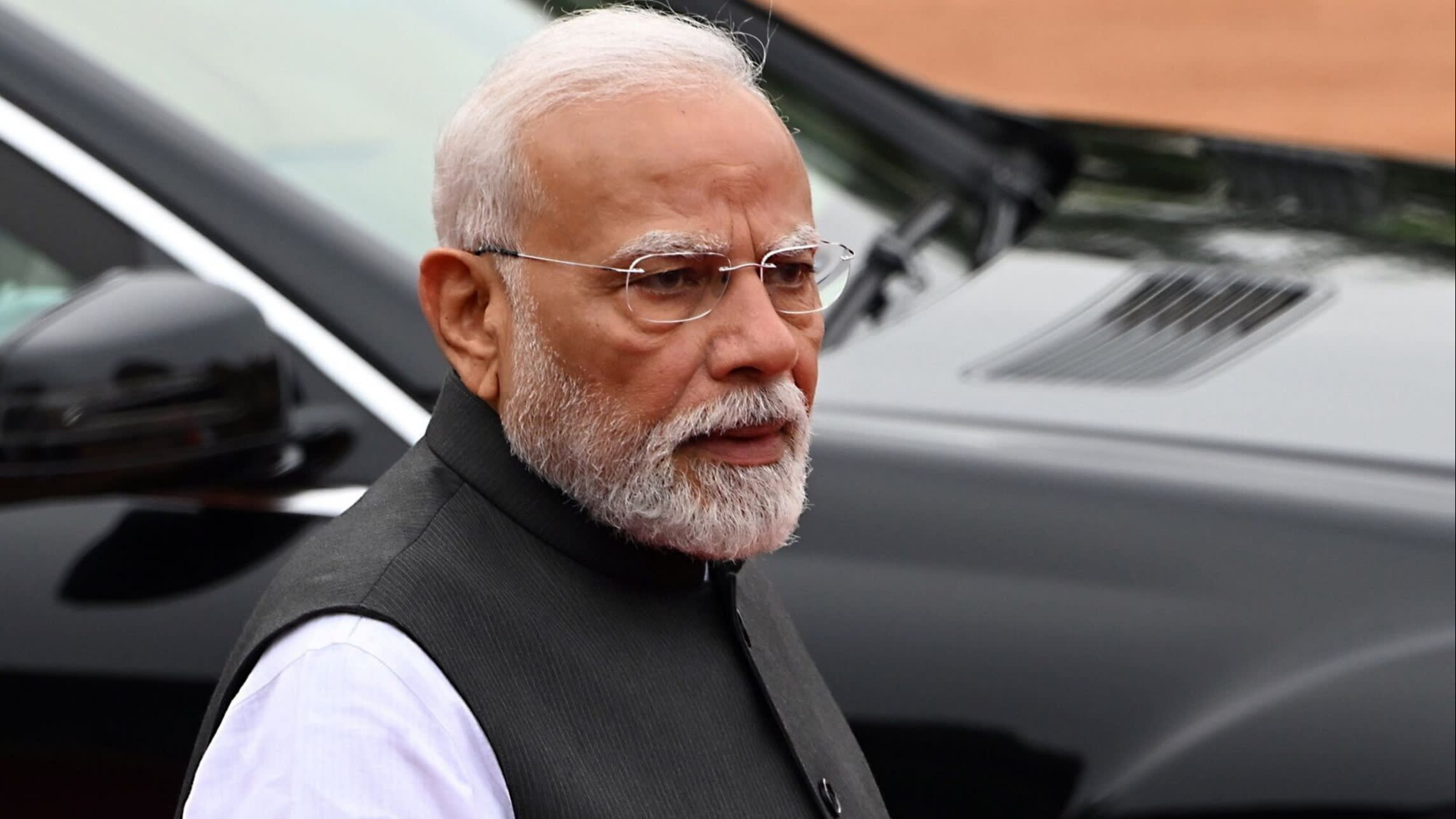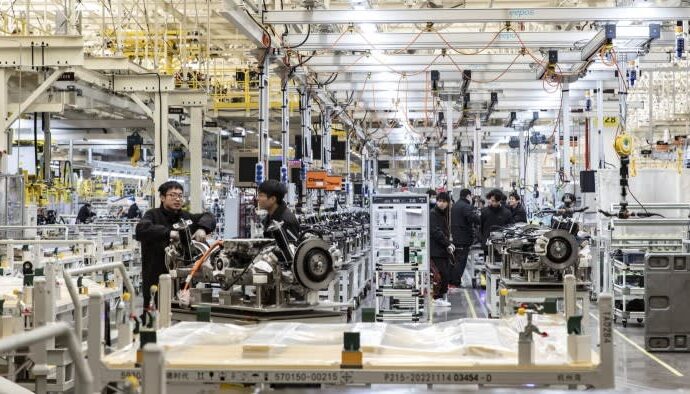
Unlock the Editor’s Digest for free
Roula Khalaf, Editor of the FT, selects her favourite stories in this weekly newsletter.
Prime Minister Narendra Modi insisted he would not compromise on the interests of India’s farmers despite Donald Trump’s imposition of a 50 per cent tariff, escalating a stand-off over trade and the country’s purchases of Russian oil.
The US president hit India with a punitive 25 per cent tariff in an executive order on Wednesday, pointing to the country’s purchases of crude from Moscow.
India already faced a 25 per cent US levy on its exports after failing to reach a trade deal with Washington before the US president’s August 1 deadline.
Speaking on Thursday at an agricultural sector conference in New Delhi, Modi did not directly address US tariffs but said he “will never compromise on the interests of farmers, livestock owners and fishermen”.
“I know, personally, I’ll have to pay a heavy price — but I am ready for it,” he added. He did not comment on India’s purchases of Russian oil, which have risen sharply since 2022.
India has now joined Brazil at the top of the list of countries facing the highest levies from Trump.
Brazil’s President Luiz Inácio Lula da Silva told Reuters that he would call Modi on Thursday to discuss how leaders of the Brics grouping — also including China, Russia and South Africa — can have a joint response to US tariffs.
Reaction in India’s financial markets was muted, with bankers in Mumbai attributing the subdued reaction to Trump’s earlier tariff threats. The benchmark Nifty 50 stock market index edged down 0.7 per cent on Thursday while the rupee traded flat against the dollar at Rs87.68.
Two people familiar with the matter said the Reserve Bank of India, which has been intervening in the market since President Trump’s broadside against India last week, sold dollars on Thursday to prop up the rupee. The central bank did not immediately respond to a request for comment.
Some export stocks in industries such as textiles were hit harder and Mukesh Ambani’s Reliance Industries, which has processed large quantities of India’s Russian crude imports, was down 1.7 per cent.
India’s state-backed Gem and Jewellery Export Promotion Council called Trump’s latest tariff rate a “deeply concerning development”. The US is the industry’s largest single market, accounting for $10bn, or 30 per cent of its exports.
“This move would have far-reaching repercussions across India’s economy — disrupting critical supply chains, stalling exports and threatening thousands of livelihoods,” the council said. “We [ask] the government for immediate relief.”
Anand Mahindra, the billionaire chair of India’s Mahindra Group, wrote on X that Trump’s tariff wars raised the risk of the “law of unintended consequences”, as he exhorted the Indian government to “radically improve ease of doing business”.
“We cannot fault others for putting their nations first,” he said. “But we should be moved to make our own nation greater than ever.”
Barclays said in a note on Thursday that the additional tariff “will likely inflict more visible economic damage on India but, as we have noted previously, the relatively domestic orientation of the Indian economy should limit the pain”.
The RBI on Wednesday maintained its forecast of 6.5 per cent GDP growth for the fiscal year ending in March 2026, with governor Sanjay Malhotra saying the central bank did not yet have “sufficient data” on the impact of the tariffs to revise its projection.
According to people briefed on the trade talks in New Delhi and Washington, India’s insistence on protecting its foodgrain and dairy sectors proved a sticking point in trade negotiations.
India Business Briefing
The Indian professional’s must-read on business and policy in the world’s fastest-growing big economy. Sign up for the newsletter here
India did not want to open the politically sensitive markets, on which hundreds of millions of people rely for their livelihoods, to US competition.
Mass farmers’ protests in northern India in 2020-21 forced Modi to retreat on three bills intended to reform the agricultural sector.
Analysts said the onus was now on New Delhi to decide whether to seek a wider bargain with Washington on trade.
“The new tariffs come into effect only after 21 days; before that there will be another round of trade negotiations,” said Teresa John, lead economist at brokerage Nirmal Bang in Mumbai. “Pressure is mounting on India to agree to a trade deal at the earliest.”
Additional reporting by William Sandlund in Hong Kong


